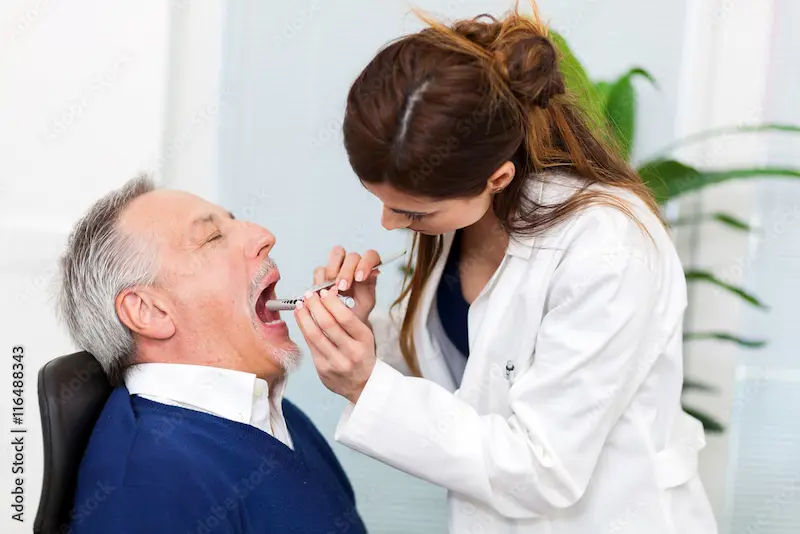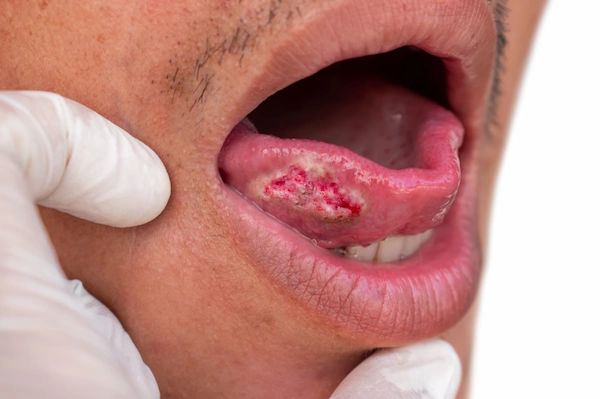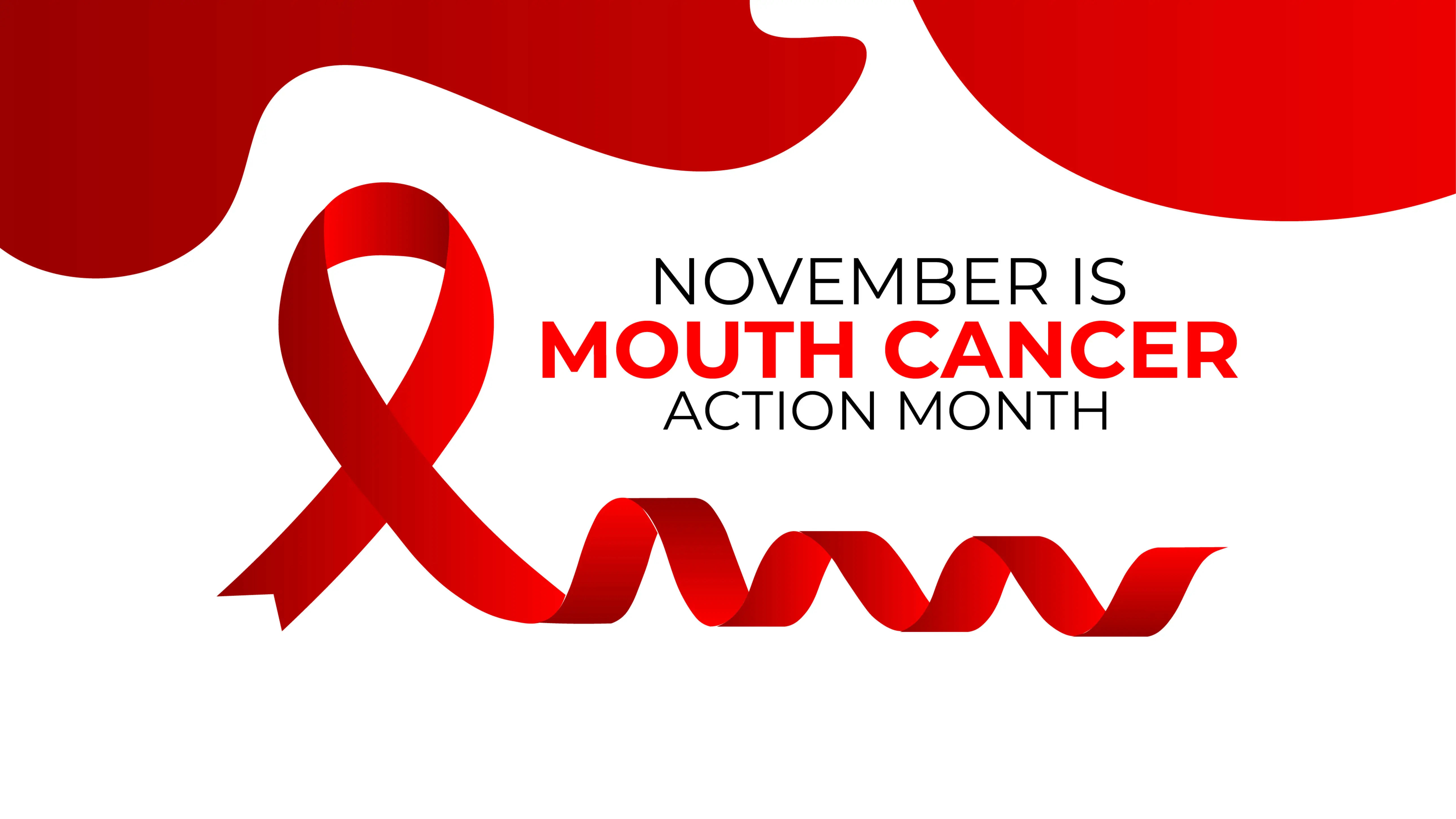Mouth Cancer Overview Causes, Symptoms, and Treatment
Learn about the causes, symptoms, diagnosis, and treatment options for mouth cancer, along with prevention tips and advice on early detection.

Written by Dr. Mohammed Kamran
Reviewed by Dr. Dhankecha Mayank Dineshbhai MBBS
Last updated on 13th Jan, 2026

Mouth cancer, also known as oral cancer, is a serious condition that affects thousands of people every year. It can develop in any part of the mouth, including the lips, tongue, gums, cheeks, and throat. Early detection and treatment are crucial for better outcomes, so understanding the causes, symptoms, and treatment options is essential.
This article will guide you through everything you need to know about mouth cancer in simple, easy-to-understand terms.
What Is Mouth Cancer?
Mouth cancer occurs when abnormal cells grow uncontrollably in the oral cavity. These cancerous cells can spread to other parts of the body if not treated early. The most common type of mouth cancer is squamous cell carcinoma, which affects the thin, flat cells lining the mouth and throat.
Common Causes of Mouth Cancer
Several factors can increase the risk of developing mouth cancer. Some of the most common causes include:
1. Tobacco Use
• Smoking cigarettes, cigars, or pipes.
• Chewing tobacco, betel quid, or gutka.
• Tobacco use is one of the biggest risk factors for mouth cancer.
2. Excessive Alcohol Consumption
• Heavy drinking increases the risk, especially when combined with tobacco.
3. Human Papillomavirus (HPV) Infection
• HPV, particularly HPV-16, is linked to throat and mouth cancers.
4. Poor Oral Hygiene
• Long-term gum disease or untreated dental issues may contribute to cancer risk.
5. Sun Exposure (for Lip Cancer)
• Prolonged sun exposure without protection can lead to lip cancer.
6. Diet Low in Fruits and Vegetables
• A lack of essential vitamins and antioxidants may increase risk.
7. Genetic Factors
• A family history of cancer may slightly increase susceptibility.
Symptoms of Mouth Cancer
Early detection is key to successful treatment. If you notice any of the following symptoms persisting for more than two weeks, consult a doctor immediately:
Common Signs:
• A sore or ulcer in the mouth that doesn’t heal.
• Red or white patches on the gums, tongue, or lining of the mouth.
• Lumps or thickening in the cheek, lips, or throat.
• Persistent pain in the mouth or ear.
• Difficulty swallowing or chewing.
• Loose teeth without any obvious cause.
• Numbness in the tongue or lips.
• Unexplained weight loss.
If you experience any of these symptoms, don’t ignore them—early medical advice can make a big difference.
How Is Mouth Cancer Diagnosed?
If your doctor suspects mouth cancer, they may recommend the following tests:
1. Physical Examination – Checking for lumps or abnormal patches.
2. Biopsy – Removing a small tissue sample for lab testing.
3. Imaging Tests – X-rays, CT scans, or MRIs to see if cancer has spread.
4. Endoscopy – A thin, lighted tube examines the throat for abnormalities.
At Apollo 24|7, you can book a consultation with an oncologist or schedule necessary tests for early detection.
Get Your Symptoms Checked now
Treatment Options for Mouth Cancer
Treatment depends on the cancer’s stage, location, and overall health. Common approaches include:
1. Surgery
• Removing the tumor and some surrounding healthy tissue.
• In advanced cases, parts of the jaw, tongue, or lymph nodes may be removed.
2. Radiation Therapy
• High-energy beams target and kill cancer cells.
• Often used after surgery to destroy remaining cancer cells.
3. Chemotherapy
• Powerful drugs kill cancer cells or stop their growth.
• May be combined with radiation for better results.
4. Targeted Therapy & Immunotherapy
• Newer treatments that help the immune system fight cancer.
5. Rehabilitation
• Speech therapy, dental reconstruction, and nutritional support may be needed after treatment.
How to Reduce Your Risk of Mouth Cancer
Prevention is always better than cure. Here are some ways to lower your risk:
• Quit Tobacco – Avoid smoking and chewing tobacco.
• Limit Alcohol – Drink in moderation or avoid it altogether.
• Protect Lips from Sun – Use SPF lip balm when outdoors.
• Maintain Oral Hygiene – Brush, floss, and visit the dentist regularly.
• Eat a Healthy Diet – Include fruits, vegetables, and whole grains.
• Get Vaccinated for HPV – The HPV vaccine can reduce cancer risk.
• Regular Check-ups – Early detection saves lives.
When to See a Doctor?
If you notice any unusual changes in your mouth that last more than two weeks, don’t delay—consult a doctor immediately. Early-stage mouth cancer is highly treatable.
You can book an appointment with an oncologist or dentist through Apollo 24|7 for expert advice and screening.
Final Thoughts
Mouth cancer is a serious but manageable condition if caught early. By understanding the causes, recognizing symptoms, and adopting preventive measures, you can significantly reduce your risk.
If you or a loved one are experiencing symptoms, seek medical help without delay. With timely treatment and healthy lifestyle choices, recovery is possible.
Need a consultation? Visit Apollo 24|7 today for expert care and support.
Consult Top Oncologist
Consult Top Oncologist

Dr Gowshikk Rajkumar
Oncologist
10 Years • MBBS, DMRT, DNB in Radiation oncology
Bengaluru
Apollo Clinic, JP nagar, Bengaluru

Dr. Raja T
Oncologist
20 Years • MBBS; MD; DM
Chennai
Apollo Hospitals Greams Road, Chennai
(200+ Patients)

Dr. Gopal Kumar
Head, Neck and Thyroid Cancer Surgeon
15 Years • MBBS, MS , FARHNS ( Seoul, South Korea ), FGOLF ( MSKCC, New York )
Delhi
Apollo Hospitals Indraprastha, Delhi
(25+ Patients)
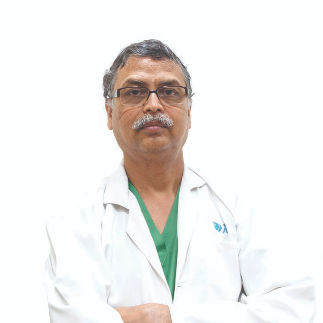
Dr. Praveen Kumar Garg
Surgical Oncologist
26 Years • MBBS, M.S.(Gen.Surg.), M.Ch.(OncoSurg.)
Delhi
Apollo Hospitals Indraprastha, Delhi
(50+ Patients)
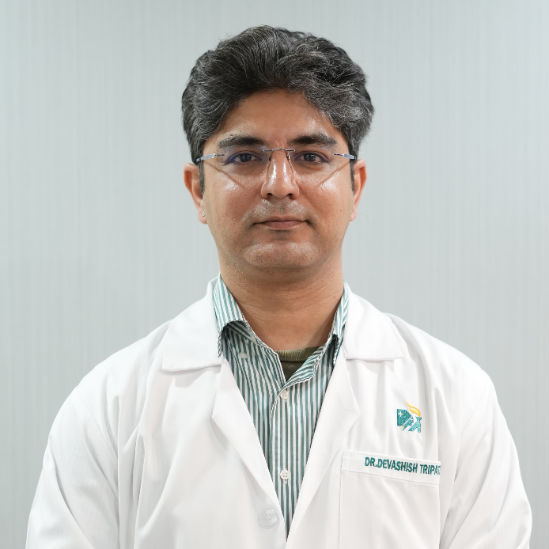
Dr Devashish Tripathi
Radiation Specialist Oncologist
20 Years • MBBS, PLAB, MRCP (UK)- General Medicine, FRCR (Oncology), Certificate of Completion of Training (CCT)- Clinical Oncology
Delhi
Apollo Hospitals Indraprastha, Delhi

